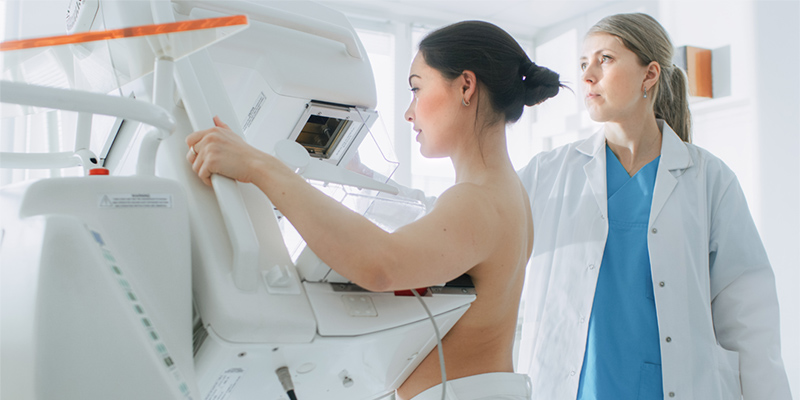SA scientists find breast cancer link in world breakthrough
By Candy Gibson
 HEALTH
HEALTHSouth Australian scientists have found a groundbreaking link between an obscure protein and aggressive types of breast cancers that mostly affect younger women and have the worst survival rates.
Researchers from the Centre for Cancer Biology – an alliance between UniSA and SA Pathology – have discovered that high levels of a protein, called Creld2, cause breast cancer to develop and grow more quickly.
The research, spearheaded by Associate Professor Michael Samuel, Dr Marina Kochetkova and postdoctoral researcher Dr Sarah Boyle, was published in Nature Cell Biology in May.
In the paper, the researchers describe how aggressive breast cancers produce Creld2, which hijacks healthy cells, to promote tumour progression.
“Scientists have been aware of this protein for some time, but it has not been well-studied and until now we hadn’t understood the role it plays in breast cancer,” Assoc Prof Samuel says.
“Creld2 appears to make normal, healthy cells surrounding the tumour behave abnormally, causing them to help tumours grow.”
His team at the CCB is now working on therapies to destroy or block Creld2, with the aim of stopping breast cancers from growing and spreading around the body.
High levels of Creld2 are found in triple negative breast cancers, which make up 15 per cent of all breast cancers in Australia, are difficult to treat and have the poorest survival rates. This type of breast cancer also frequently affects younger women.
Co-lead scientist Dr Marina Kochetkova says the biggest problem with triple negative breast cancers is that they often reoccur, metastasise (spread to other sites in the body) and acquire drug resistance.
"In many cases, these cancers come back with a vengeance," she says.
"Our breakthrough is unlikely to cure triple negative breast cancer but we can hopefully make it less aggressive."
About 29 per cent of women are diagnosed with breast cancer each year, making it the most common cancer according to Breast Cancer Network Australia. It is also the second leading cause of cancer-related death in Australian women after lung cancer.
Creld2 at high levels is also found in kidney cancers, non-melanoma skin cancers – the most commonly diagnosed cancer in Australia – and invasive squamous cell carcinomas, which can be deadly if not detected early.
Eighteen researchers were involved in the study, including 12 from the Centre for Cancer Biology, most notably Dr Boyle, a Hospital Research Foundation Early Career Fellow who was lead author on the Nature Cell Biology paper.
Dr Boyle won the CCB Early Career Investigator Award in 2018 and also won the 2016 Australian Society for Medical Research Ross Wishart Memorial Award for an Outstanding Early Career Researcher.
The paper is available in Nature Cell Biology.
Other Stories
- World-first contraceptive gel developed by UniSA researcher to hit the US market
- UniSA wins $7.8m for research to prevent infections, diagnose medical conditions and improve aged care
- SA scientists find breast cancer link in world breakthrough
- Alien frog invasion wreaks havoc on natural habitat
- From the Vice Chancellor
- Achievements and Announcements
- Video: Parenting in a pandemic – how children’s lives will change after COVID-19
- The death of open plan offices? Not quite, but trust and autonomy the new norm in workplaces
- Winter at home is much more enjoyable in a warm house
- UniSA Online offers new 100 per cent online accredited psychology degree
- Workplace flexibility: will it disappear with social distancing?
- Hidden mental health issues among refugees
- Veteran and first responder wellbeing program to expand by offering occupational therapy
- The latest books from UniSA researchers
- In Pictures: UniSA students head back to school




